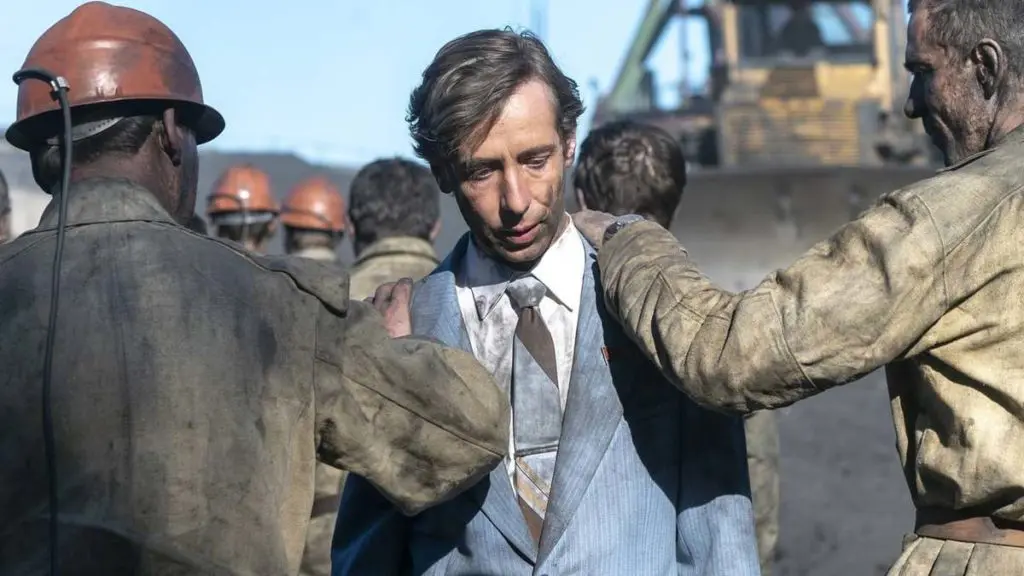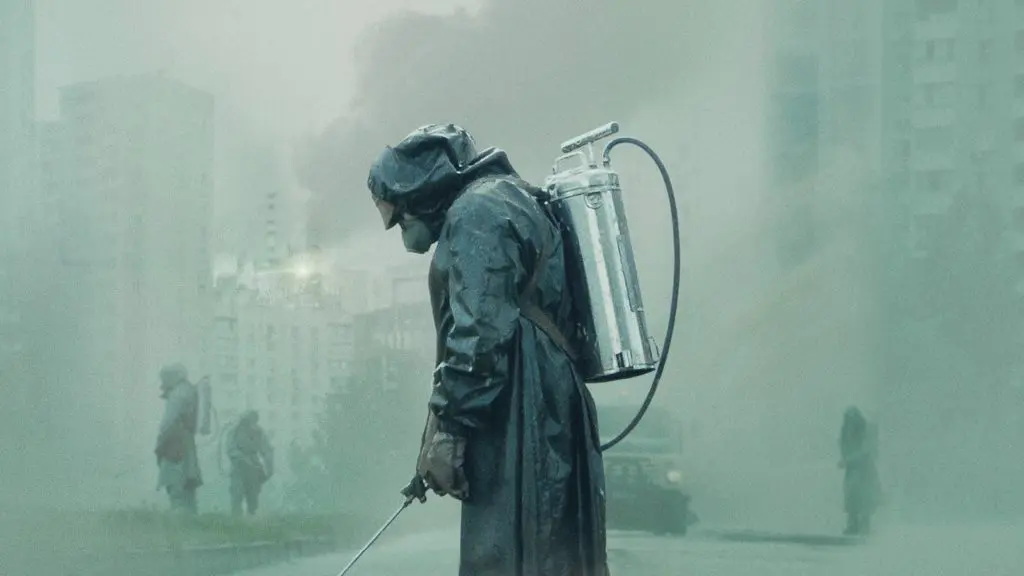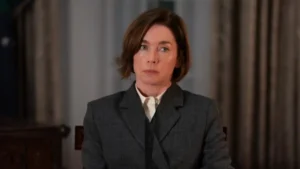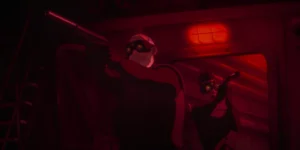Summary
“Open Wide, O Earth” continues to depict an awful tragedy with uplifting humanity, finding the spirit of hope and community in a system of repression and fear.
This Chernobyl episode 3 recap for the episode titled “Open Wide, O Earth”, contains spoilers. You can check out our thoughts on the previous episode by clicking these words.
One of my favorite low-key things about HBO’s Chernobyl is that English actors speak in English accents rather that faking over-the-top Russian ones. And that’s important because it speaks to something essential about the show, which is how it lets the tragedy it’s depicting speak for itself, in its own voice. Ultimately, it hardly matters if a man whose flesh is bubbling from radiation poisoning chokes out his final words in a believable regional accent; what matters is that his death matters, as do the circumstances that caused it.
So, that’s one thing. Another, which has been evident throughout and persists in the third episode, “Open Wide, O Earth”, is Chernobyl‘s devotion to the simple power of frankness: Of telling the truth, even to an authority that doesn’t want to hear it. A small early scene of Valery Legasov (Jared Harris) arguing with Mikhail Gorbachev (David Dencik) about the half-life of plutonium-239 is vaguely funny because Gorbachev is so unused to being answered back that he just hangs up the phone.

That irascible national attitude of the Cold War Soviet Union is integral too, especially in how the unwillingness of bureaucrats to do anything that jeopardizes the nation’s geopolitical standing contrasts with the willingness of ordinary citizens to put their lives on the line to do the right thing. If the usual depiction of the Soviet Union is as a faceless totalitarian entity, Chernobyl is able to find within that the actual humanity behind the Iron Curtain; the strength and resilience of the ordinary people whose sacrifice helped to staunch the bleeding in Chernobyl’s aftermath.
“Open Wide, O Earth” is able to find that humanity perhaps more so than any prior episode in its touching farewell scene between Lyudmilla (Jessie Buckley) and a deteriorating Vasily (Adam Nagaitis), which unfolds in a sterile quarantine room where unpleasant inevitability is virtually a character of its own. The grimly realistic practical effects in use here might seem like overkill, but after a while, you barely notice them, which I suppose is the point. You could strip all that away and still get the point of the scene; you could perhaps even mute it. Rarely does a TV show communicate its point so clearly and so powerfully without having to lean heavily against traditional filmmaking or writing techniques. Chernobyl‘s truth is in depicting a system of repression that can’t stifle the spirit of its people. Few depictions of tragedies are so hopeful.




